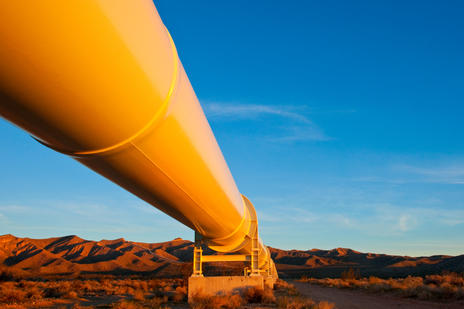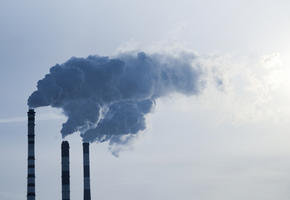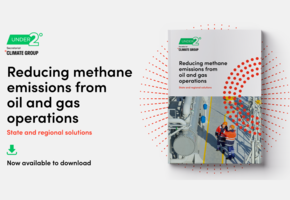
About the project
Reducing Short-Lived Climate Pollutants (SLCPs) such as methane will help achieve near-term climate goals, as well as benefit health and air quality. As a result, SLCPs – particularly methane - have been identified by Under2 Coalition governments as a priority area for policy cooperation.
During the first phase of the project held in 2019, Under2 Coalition governments explored both proven and emerging approaches to measuring and reducing methane emissions through a series of webinars and case studies. Participants engaged with industry experts and connected with global methane initiatives.
The second phase of the project will bring together a committed group of Under2 Coalition governments for in-depth learning on policy options to reduce emissions.
The Under2 Coalition Methane project is supported by the Pisces Foundation.
Why take action?
Reducing methane will help achieve climate goals
Over a 20-year timespan, methane has more than 80 times the climate warming impact of carbon dioxide. Action on methane and other SLCPs will help achieve the climate goals outlined in the Paris Agreement, alongside strong action to reduce carbon dioxide emissions. According to the Intergovernmental Panel on Climate Change (IPCC), reducing SLCPs can contribute significantly to limiting warming to 1.5°C above pre-industrial levels in the short term.
The oil and gas industry is a key source of methane
In 2017, the industry released around 80 million tonnes of emissions, equal to 6% of global greenhouse gas emissions from the energy sector. The sector is estimated to contribute to around 25% of global methane emissions. These emissions come from leaks and routine venting during the production, processing and transportation of natural gas as well as from oil operations.
Reducing methane benefits health
In addition to methane emissions, oil and gas operations also release volatile organic compounds (VOCs). VOCs are recognised as hazardous air pollutants, are potentially carcinogenic and are known to cause other serious negative health impacts.
Cost-effective solutions are available
There are already solutions available to reduce methane emissions from oil and gas operations. These include leak: detection and repair programs, utilising best practice equipment, technologies and operating techniques, and methane capture and utilisation. These solutions are not only readily available, many are also cost-effective for companies and for the economy overall. Reducing leaks and capturing gas that can be sold represents an added value for oil and gas companies and reducing gas losses can create economy-wide benefits, such as lower prices for customers.
Governments need to act
Governments need to act so that mitigation solutions are implemented quickly and on a large scale in order to meet climate goals and realise health and economic benefits. Although some industry leaders are achieving reductions through their own efforts, for others this area is not a priority. There are limits to what can be achieved through voluntary actions, and government policies can ensure that all companies are taking action to reduce emissions.
State and regional governments have a role to play
Through their regulatory powers, state and regional governments can help turn best practice into standard practice in areas such as air quality and industry emission standards. State and regional governments can also support innovation to develop new and more efficient technologies. Where national or local district governments have existing regulations, state and regional governments can strengthen or complement these while also addressing any gaps. State and regional governments can also take action through non-regulatory means, such as investing in research, providing tax incentives and improving their own reporting requirements or transparency measures.
Publications & webinars
Case studies
Reducing black carbon and methane emissions in Colombia
Reducing gas flaring in Nigeria
Capping methane emissions from natural gas infrastructure in Massachusetts
Tackling methane gas emissions from oil and gas sector in British Columbia
Emission standards for crude oil and natural gas facilities in California
Reports
Webinars
Webinar recordings are available to Under2 Coalition members on request
- Role of partnerships in reducing methane emissions; Wrap-up and way forward (December 17, 2019)
- Ending routine natural gas flaring (October 17, 2019)
- New technologies for identifying and repairing methane leaks from oil and gas operations including pipelines (September 18, 2019)
- Options for methane recovery and use from oil and gas operations (August 14, 2019)
- Detecting methane leaks from oil and gas operations (June 5, 2019)

